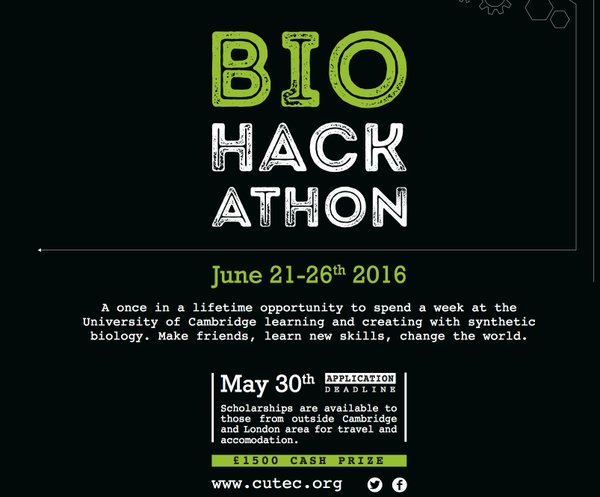The 2018 Summer Biomaker Challenge was wrapped up in October with a showcase event, but it not all over. Biomaker activities are still going strong! Below is a summary of activities as well as a write up of the Biomaker Fayre and the winning teams….
Biomaker Activities
Winter Software Challenge (apply by 16 December 2018): Interested in programming? Low-cost hardware for science? Learning new skills with a team? We provide the hardware, you develop software nodes for integrating hardware with new graphical programming interface, XOD. More information at www.biomaker.org/apply-now - a quick, rolling application process so you can receive your kit and start playing ASAP!
Norwich Biomakers - An interdisciplinary network exploring the cross-over of biology with design, technology, engineering, electronics, software, art and much more. A place to learn about the latest technologies, share ideas and skills and shape projects. We meet up on a monthly basis.
Cambridge Synthetic Biology meetups - A clearing house for a wide variety of regular open meetings like Cafe Synthetique, Science Makers and the SRI Forums - with a particular focus on building tools and interdisciplinary research.
Cambridge Biomakespace - Scientists, engineers, students and entrepreneurs are developing the new Cambridge Biomakespace - an innovation space for building with biology in the historic MRC Laboratory of Molecular Biology building.
The Biomaker Fayre
On Saturday 29 October, over 100 attendees came together in the University of Cambridge Department of Engineering to showcase and celebrate open-source technologies in research and education. The day consisted of a morning of talks followed by the Biomaker Fayre, where this year's ten Biomaker Challenge teams exhibited their projects alongside industry leaders and independent makers.
We started the day with some inspiring talks: Paolo Bombelli & Alasdair Davies on open tools for animal conservation and the "Powered by Plants" project, Grey Christoforo on hacking 3D printers to create better solar cells, Helene Steiner on OpenCell and teaching the next generation of designers to work with scientists, Richard Hayler on citizen science and education with Raspberry Pi and Julian Stirling on open instrumentation for Africa.
After a coffee break and lunch, we headed upstairs for the Biomaker Fayre. There was a festive feel to the space- gold balloons marked each exhibit, 3D-printed trophies were on display to be given out at the end of day, and attendees filled the space, excited to get involved and try out some hands-on demos.
Exhibits covered everything from a cartesian coordinate robot for dispensing fruit fly food to a wearable biosensor for monitoring vaginal discharge and a temperature-controlled container for sample transportation. Among the exhibitors were the ten Biomaker Challenge teams. In June, each team were given a £1000 grant and four months to turn their ideas for open source and DIY research tools into a reality.
The Biomaker Challenge judges were very impressed by each one of the projects and ended up deliberating for over an hour. In the end, the 3D-printed trophies (low-cost and DIY of course) were presented to the following teams:
Best Technology
Dual-View Imaging in a Custom-Built Light Sheet Microscope
Stephanie Hohn, Hannah Sleath, Rashid Khashiev, Francesco Boselli, Karen Lee
"The large variety of Biomaker projects was very inspiring. We had a lot of fun during the challenge and the feedback from people in different fields was really helpful. It was great to get in touch with programmers, engineers and designers. We received a great confidence boost for future more technical projects."
Stephanie Hohn (University of Cambridge)
Best Biology
Spectre, Low-cost whole-cell biosensors for environmental and medical surveillance.
Feng Geng, Boon Lim, Xiaoyu Chen, Jimmy Chen
"The Biomaker Challenge has provided us a great opportunity to extend our research into real-world application. As most of us come from a biological background, we faced a lot of difficulties on assembling the electronics and programming our Arduino kit. With three months of perseverance and constant guidance from our advisor Tony, we managed to come up with a customised, miniaturised spectrophotometer which can be used in conjunction with our whole-cell biosensor. We received an Arduino kit and sufficient funding to get us through the proof-of-concept stage of our project and from here, we are planning to further develop and optimise our device into a start-up company. It is amazing to think that it all starts with a small Biomaker Challenge Summer Project!"
Boon Lim, University of Oxford
Maker Spirit
Wearable biosensor for monitoring vaginal discharge
Tommaso Busolo, Giulia Tomasello, Michael Calabrese, James Che
"We all really enjoyed the multidisciplinary nature of the challenge, working with people from all sorts of backgrounds. We feel we now have a much clearer, hands-on insight into how the more diverse a collaboration is, the more relevant, impactful and exciting the results of ideas brainstorming can be!"
Michael Calabrese, University of Cambridge
Biomaker Challenge and Open Technology Workshop aimed to show the value of open, low-cost and DIY technologies as convening points for interactions between biologists and engineers. They are also important educational tools for those who are interested in developing technical skills and have great potential for improving the quality of science and increasing productivity in the lab for lower costs. With the proliferation of digital designs for 3D-printing and easily available consumer electronics like Arduino which has a huge community of users and lots of online help, designing your instrumentation around your experiment rather than vice versa has never been more possible.
Check out more photos from the day!
The descriptions of all prototypes are available at www.hackster.io/biomaker. To find out more about the most recent and upcoming competitions go to www.biomaker.org/biomaker-challenge to be kept up to date with developments.
Biomaker Challenge 2018 was funded by OpenPlant, a BBSRC/EPSRC Synthetic Biology Research Centre Grant BB/L014130/1. The Biomaker Challenge and Open Technology Workshop were coordinated by University of Cambridge's Synthetic Biology Strategic Research Initiative

![[Closes 24 Nov 2107] Apply now to the OpenPlant Fund!](https://images.squarespace-cdn.com/content/v1/54a6bdb7e4b08424e69c93a1/1509564315902-TUO4I6QRWI9TT8UGSIAJ/OpenPlantTwitter_400x400+%281%29.jpg)

![[Closes 7 Mar 2017] OpenPlant Research Associate (Haseloff Lab)](https://images.squarespace-cdn.com/content/v1/54a6bdb7e4b08424e69c93a1/1486552818859-FH76MCA8SMFU93WB85RX/OpenPlantTwitter_400x400.jpg)



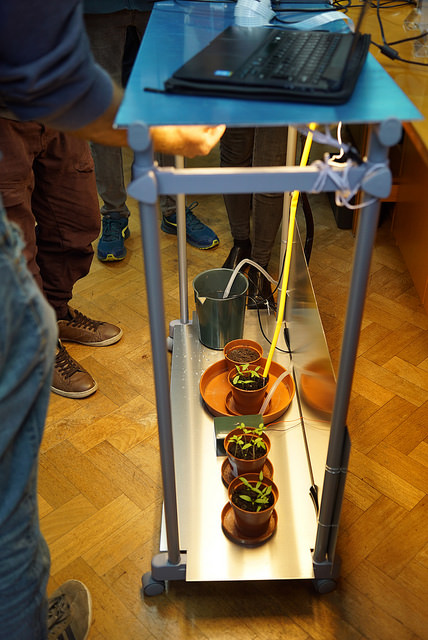
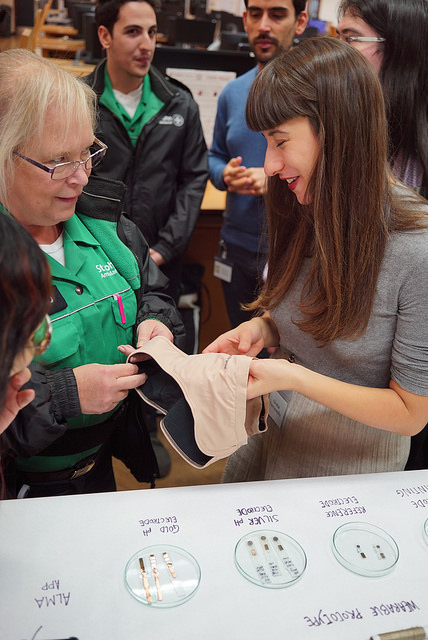
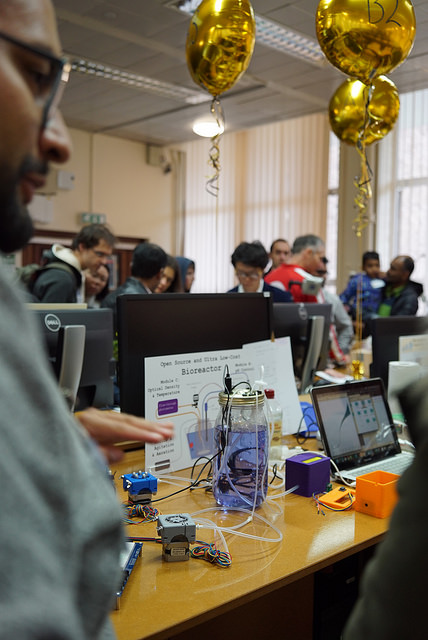
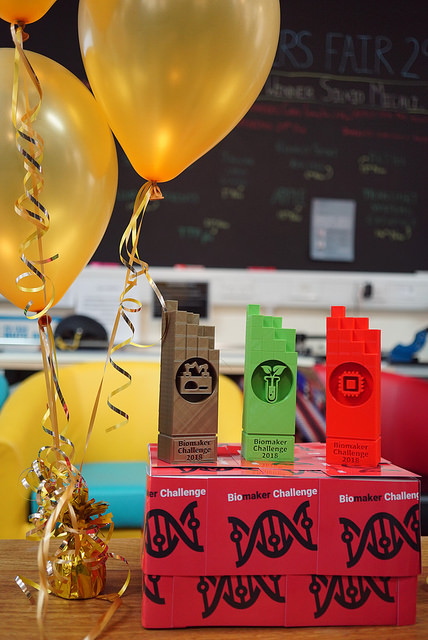







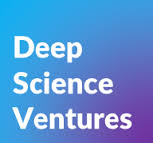 Interested in working in the world of biotech start-ups? A new programme called Deep Science Ventures works with PhD graduates to create high-tech startups from scratch even if you haven’t yet found the right idea or team.
Interested in working in the world of biotech start-ups? A new programme called Deep Science Ventures works with PhD graduates to create high-tech startups from scratch even if you haven’t yet found the right idea or team.
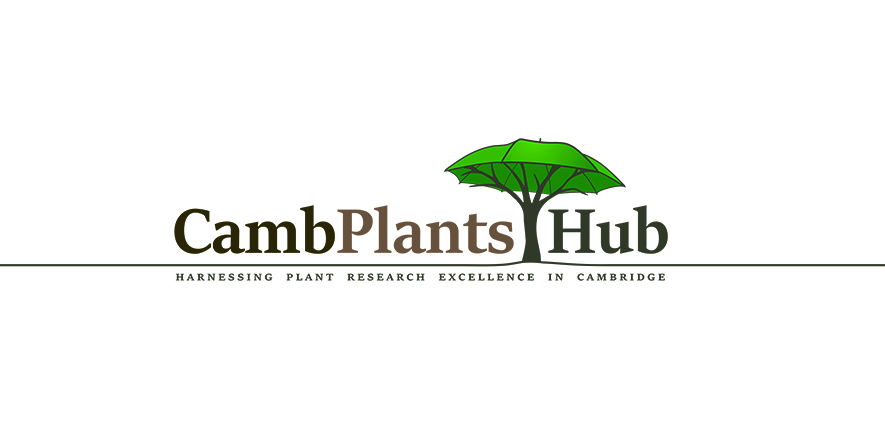 Do you want to raise your profile? Experience presenting to a multidisciplinary audience? Find ideas and inspiration? Find out how it really looks like to work in industry?
Do you want to raise your profile? Experience presenting to a multidisciplinary audience? Find ideas and inspiration? Find out how it really looks like to work in industry?